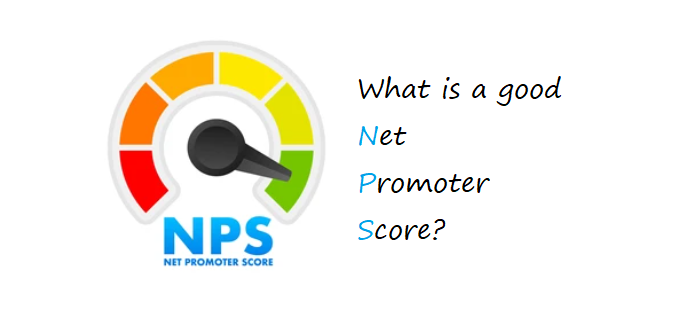What is a Good Net Promoter Score? Understanding the Benchmark for Customer Loyalty
Net Promoter Score (NPS) has become a widely used metric for assessing customer loyalty and satisfaction. While NPS provides valuable insights into customer sentiment, many businesses often wonder: What is a good NPS score? In this article, we will explore the benchmark for NPS and shed light on what constitutes a favourable NPS score.
Understanding NPS and its Scale
Before diving into the concept of a good NPS score, let’s recap what NPS represents. NPS is a metric that measures the likelihood of customers recommending a company, product, or service to others. It is based on a simple question: “On a scale of 0 to 10, how likely are you to recommend our company to a friend or colleague?”
Customers’ responses are divided into three categories:
- Promoters (score 9-10): These customers are highly satisfied and loyal. They actively promote your brand and contribute to positive word-of-mouth.
- Passives / Indifferent (score 7-8): Passives / Indifferent, are moderately satisfied customers who are neutral in terms of recommendations. They are less likely to actively promote your brand or switch to competitors.
- Detractors (score 0-6): Detractors are dissatisfied customers who may harm your reputation through negative word-of-mouth. They are unlikely to recommend your brand and may consider switching to competitors.
Calculating the NPS
To calculate the Net Promoter Score, subtract the percentage of detractors from the percentage of promoters. The resulting score ranges from -100 to +100. A higher NPS signifies a greater number of promoters relative to detractors.
Interpreting NPS Scores
While the interpretation of NPS scores can vary across industries and companies, here’s a general guideline to help assess the significance of your NPS:
- NPS above 0: An NPS score above zero indicates that you have more promoters than detractors. While this is a positive sign, there is still room for improvement in terms of customer loyalty and advocacy.
- NPS between 0 and 30: A score in this range suggests a good level of customer satisfaction and loyalty. However, it may be necessary to analyse further to identify areas for improvement and enhance customer experiences.
- NPS above 30: An NPS score above 30 represents a strong level of customer loyalty and advocacy. It indicates that your customers are generally satisfied with your brand and willing to recommend it to others. This can lead to positive word-of-mouth and increased customer retention.
- NPS above 70: An NPS score above 70 is considered exceptional. It signifies that your customers are highly loyal and enthusiastic promoters of your brand. Such a high NPS can have a significant positive impact on your business, driving customer acquisition and contributing to long-term success.
Factors Influencing NPS Scores
It’s important to note that NPS scores can be influenced by various factors, including industry norms, customer expectations, and the competitive landscape. Different industries may have different benchmarks for what constitutes a good NPS score.
Additionally, customer demographics, geographic location, and cultural differences can impact NPS scores. It is crucial to consider these contextual factors when evaluating your NPS and comparing it to industry benchmarks.
The Importance of Context and Continuous Improvement
While benchmarks can provide a rough indication of where your NPS stands, it is essential to remember that NPS is not a one-size-fits-all metric. The most crucial aspect is to focus on continuous improvement. Regularly tracking and analysing NPS scores over time allows you to monitor changes in customer sentiment, identify areas for enhancement, and make data-driven improvements.
Instead of solely aiming for a specific NPS score, businesses should prioritize understanding customer feedback and addressing their needs and concerns. By fostering a customer-centric approach and consistently striving to deliver exceptional experiences, you can build strong customer loyalty and advocacy.
A good NPS score is one that reflects a higher number of promoters relative to detractors. However, the benchmark for a good NPS score can vary across industries and is influenced by multiple factors. Rather than fixating on a specific score, businesses should focus on continuous improvement, addressing customer feedback, and enhancing the overall customer experience. By doing so, companies can cultivate customer loyalty, drive positive word-of-mouth, and achieve long-term success in today’s competitive business landscape.
How we at Team Allegiance can help you:
Team Allegiance offers comprehensive services in Customer Experience (CX) research to assist businesses in understanding, improving, and maximizing their customer interactions.
We can help you:
- Identify areas for improvement in customer interactions.
- Enhance customer loyalty and advocacy.
- Get customer insights for strategic decision-making.
- Stay competitive by understanding competitor approaches.
- Drive positive word-of-mouth and long-term success.







